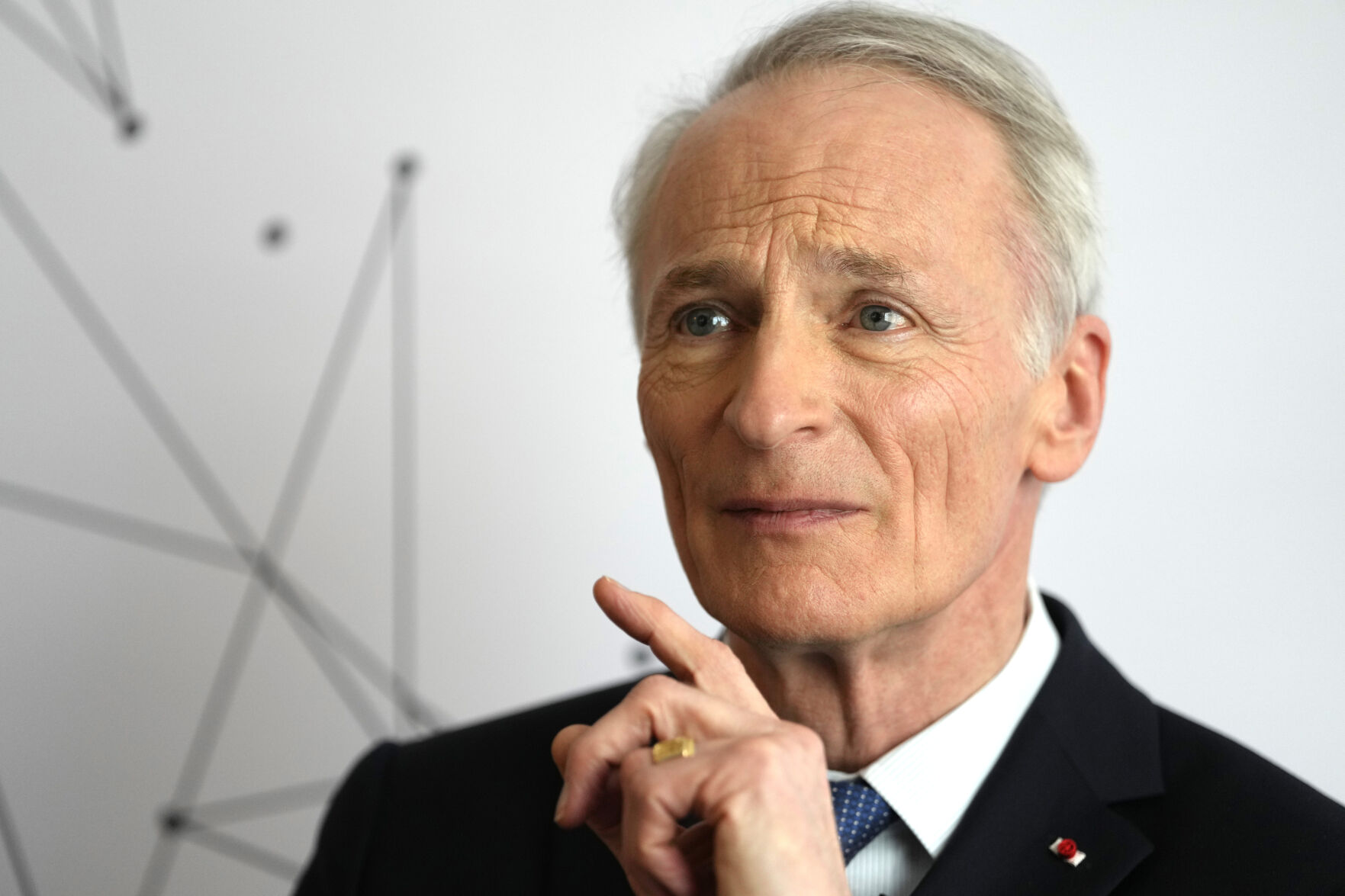LONDON — Automakers Renault and Nissan today formalized their reboot of a relationship that had grown rocky, culminating in the spectacular fall of top executive Carlos Ghosn, who had led successful turnarounds at both companies before his arrest and daring escape.
The boards of both companies approved equalizing the stake each automaker holds in the other to 15%, bringing a better balance in the French-Japanese alliance, which also includes smaller Japanese carmaker Mitsubishi Motors Corp. The uneven shareholdings had been viewed at times as a source of conflict.
Until now, Renault Group of France owned 43.4% of Nissan Motor Co., while the Japanese automaker owned 15% of Renault.
“We have been waiting a long time for this moment,” Renault board Chairman Jean Dominique Senard said at a news conference in London, calling it a “new era.”
Nissan intends to invest up to 15% in Ampere, Renault’s electric vehicle and software entity in Europe that Mitsubishi also will consider investing in. The automakers said they will collaborate in markets worldwide, including Latin America, Europe and India.
The moves come at a time when the extremely competitive auto industry is undergoing a major shift toward electric vehicles and other environmentally friendly models.
The long speculated changes to the carmaker alliance were announced a week ago. Shares equivalent to a 28.4% stake will be transferred to a French trust, according to the companies.
Renault, whose top shareholder is the French government, and Nissan agreed on an orderly sale of that stake, although there will be no deadline.
Nissan Chief Executive Makoto Uchida vowed to take the alliance to “the next level of transformation” to adapt to a new era.
“This is not a choice but a need,” he said.
In theory, partnerships are a good way for automakers to cut costs by sharing parts, production and technology, especially when the industry is going through such dramatic change with EVs.
That also means that, once formed, ending an alliance can be difficult because the companies’ development, manufacturing and products get so closely tied together.
Still, partnerships can stumble because of the different corporate cultures of the automakers, especially when it involves a meeting of the West and East.
The Renault-Nissan alliance, which started in 1999, was plunged into scandal when Ghosn, the executive sent by Renault to lead a turnaround at the then-near-bankrupt Nissan, was arrested in Japan in 2018 on financial misconduct charges.
Ghosn, who says he is innocent, jumped bail in a daring escape by hiding in a box spirited aboard a private jet and now lives in Lebanon, which has no extradition treaty with Japan. Renault and Nissan have been distancing themselves from the Ghosn scandal.
In an interview with The Associated Press, Senard emphasized that Renault is decidedly in the post-Ghosn era.
“That is in the past. I mean, nobody in Renault today is talking about that subject,” he said, without mentioning Ghosn’s name. “They’re all concentrated, honestly, on the future, on what we’re doing.”
With its Ampere project, Renault is scrambling to beef up its electric car lineup like other automakers, adding to an increasingly competitive field long dominated by Tesla. Senard said he’s confident about the French automaker’s chances.
“You look at the new cars that are coming out from the Renault plants today. They’re just beautiful,” he said. “I mean, they have nothing to be jealous about when they look at Tesla and these other guys.”
The Renault chairman acknowledged that Chinese electric car brands exporting to Europe have a “strong cost advantage” but that gives the French automaker extra incentive to compete.
“It’s a bet, but as you understand, we have decided to win that bet,” he said.
Executives at the news conference, including Renault CEO Luca de Meo, stressed that collaborations, cost cuts, model offerings and sales will grow, noting the companies’ relationship will look toward the future and become “normal.”
Senard appeared to acknowledge the bumps along the way when he noted hopes that past misunderstandings will be fixed.
“These frustrations are behind us,” he told reporters.
Renault left the Russian market last year after the invasion of Ukraine, selling its majority stake in Avtovaz, a Russian car company best known for its Lada brand, and its Moscow factory for a symbolic single ruble.
Senard told the AP that the door is still open for the company to return.
“If one day we thought it made sense to come back in Russia in one form or another, that means that many things would have changed. If that happens, why not?” he said.


